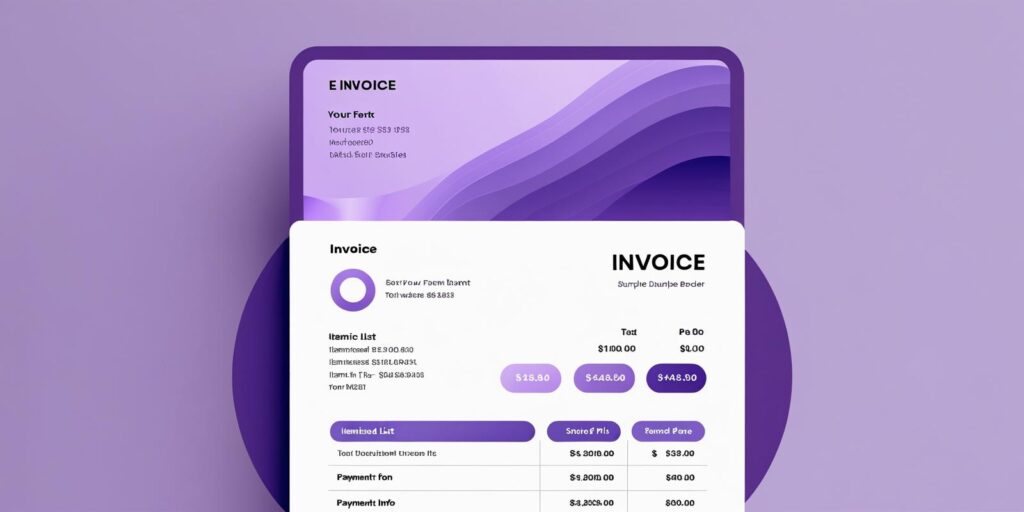
Introduction
In the digital age, businesses are increasingly embracing technology to optimize processes, and e-invoicing emerges as a transformative solution in financial management. Malaysia, a rapidly developing Southeast Asian nation, is at the forefront of adopting e-invoicing to revolutionize its tax administration and business landscape.
E-invoicing, or electronic invoicing, represents the transition from traditional paper-based invoices to a structured electronic format, facilitating the seamless exchange of invoice data between sellers and buyers. This digital shift holds the promise of increased efficiency, accuracy, transparency, and cost savings for businesses and the government alike.
In Malaysia, the e-invoicing initiative is spearheaded by the Inland Revenue Board of Malaysia (IRBM), the country’s tax authority, with the Malaysia Digital Economy Corporation (MDEC) playing a crucial role in implementing the Peppol framework. The IRBM aims to leverage e-invoicing to modernize the tax system, enhance tax compliance, and foster a more efficient business environment. This comprehensive exploration will delve into the intricacies of e-invoicing in Malaysia, covering its technical aspects, implementation, benefits, challenges, global context, and future outlook.
What is E-Invoicing?
E-invoices are electronic documents that contain all the necessary information found in traditional paper invoices,including seller and buyer details, invoice date, invoice number, item descriptions, quantities, prices, taxes, and total amounts. However, unlike paper invoices, e-invoices are created and exchanged in a structured electronic format,typically XML or JSON, that can be easily processed by computers.
In Malaysia, the e-invoice format is specified by the IRBM, ensuring consistency and compatibility across different systems. This format includes a set of mandatory and optional data fields, enabling seamless integration with accounting and financial software.
Why is E-Invoicing Important for Malaysia?
E-invoicing offers a multitude of benefits to businesses, the government, and the overall economy of Malaysia:
- Enhanced Efficiency and Cost Savings: Automation of the invoicing process reduces manual effort, minimizes errors, and frees up resources for businesses. The elimination of paper invoices lowers costs associated with printing, mailing, and storage.
- Improved Accuracy and Compliance: Real-time validation and clear audit trails ensure accurate transactions and tax compliance, reducing the risk of errors, discrepancies, and potential tax audits.
- Faster Payments and Cash Flow: Quicker processing of e-invoices leads to faster payments, improving cash flow for businesses and contributing to overall economic efficiency.
- Environmental Benefits: Reduced paper consumption and lower carbon emissions contribute to environmental sustainability, aligning with Malaysia’s commitment to a greener future.
- Data-Driven Insights: E-invoicing generates valuable data that can be used for business analytics and economic analysis, enabling data-driven decision-making at both the micro and macro levels.
E-Invoicing Implementation in Malaysia
The Malaysian government has adopted a phased approach to e-invoicing implementation:
- Phase 1 (August 1, 2024): Mandatory for taxpayers with annual turnover exceeding RM100 million.
- Phase 2 (January 1, 2025): Mandatory for taxpayers with annual turnover between RM25 million and RM100 million.
- Phase 3 (July 1, 2025): Mandatory for all other taxpayers, including those with turnover below RM25 million.
To facilitate the transition to e-invoicing, the IRBM has developed the MyInvois Portal, a centralized platform for e-invoice registration, submission, and validation. The portal provides businesses with a user-friendly interface for managing their e-invoices and interacting with the IRBM.
In addition to the MyInvois Portal, MDEC is implementing the Peppol (Pan-European Public Procurement Online) framework, an internationally recognized standard for e-procurement. Peppol enables the secure and reliable exchange of electronic documents, including e-invoices, between businesses and governments across borders. The adoption of Peppol will further streamline cross-border transactions and facilitate international trade for Malaysian businesses.
Challenges and Solutions in E-Invoicing Implementation
The transition to e-invoicing is not without its challenges, including:
- Technological Infrastructure: The government is investing in expanding broadband connectivity and making e-invoicing solutions affordable for businesses of all sizes.
- Technical Expertise: The IRBM and MDEC are providing comprehensive training programs and resources to empower businesses with the necessary technical knowledge and skills.
- Data Security and Privacy: Robust security measures like encryption, access controls, and regular audits are being implemented to protect e-invoice data.
- Cost of Implementation: Financial incentives, such as grants or tax deductions, are being explored to encourage e-invoicing adoption, especially among SMEs. Cloud-based solutions are also emerging as a cost-effective option.
- Resistance to Change: The IRBM is engaging with businesses to address concerns and facilitate a smooth transition through change management strategies.
E-Invoicing: A Global Phenomenon and the Future in Malaysia
E-invoicing is a global trend, with many countries recognizing its potential to streamline tax administration, combat tax evasion, and promote efficiency. Malaysia’s adoption of e-invoicing, in line with this global trend, positions the country as a leader in digital transformation in Southeast Asia.
The future of e-invoicing in Malaysia looks promising. The IRBM has ambitious plans to expand its scope and functionality, including exploring B2C transactions and integrating e-invoicing with other digital initiatives. The collaboration with MDEC to implement Peppol further strengthens Malaysia’s position in the global e-invoicing landscape.
Conclusion
E-invoicing is a game-changer for Malaysia, promising to transform the way businesses handle invoicing and interact with the tax system. The numerous benefits of e-invoicing, ranging from cost savings and efficiency gains to improved tax compliance and environmental sustainability, make it an indispensable tool for businesses in the digital age.
Through a collaborative effort between the government, businesses, and technology providers, Malaysia is overcoming the challenges associated with e-invoicing implementation. By investing in infrastructure, providing support and training,prioritizing data security, mitigating costs, and facilitating change management, Malaysia is paving the way for a smooth and successful transition to e-invoicing.
As businesses and taxpayers embrace this digital transformation, they can expect to reap the rewards of a more efficient,transparent, and compliant business environment. The future of e-invoicing in Malaysia is bright, and its impact on the economy is set to be transformative.
Malaysia Digital Economy Corporation (MDEC) LHDN (Lembaga Hasil Dalam Negeri)
